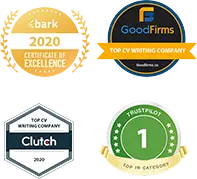A cover letter allows you to provide information that may not be explicitly covered on your resume. A good cover letter should be very specific and contain a strong argument about why you are the best candidate for the position.
Write the Opening Line, “I am here.”
The first thing to remember when writing cover letters or resumes is that you are one of many people, and your job is to set yourself apart from the crowd. So before you start your letter, think before you start writing: “I am writing to ask you to apply for a position as a trainee accountant at Gerald Ferguson.” You may be a good fit for a trainee accountant position at a conservative firm. For example, when I chose to major in accounting in college, I didn’t do it because I felt I had to either please my parents or as a “safe” option. I studied accounting because I like numbers or I like good numbers. Understanding numbers is just as exciting and satisfying as first encountering them in your high school accounting class.
Be Clear and Concise
Keep your cover letter to one to two pages so you can quickly read your application. Additionally, you shouldn’t overwhelm recruiters with too many details. Include details that are strictly related to the job. Please do not describe any article you publish. Instead, I cite a few major articles and explain their rationale and importance. However, you can mention how your article fits into the existing literature. But limit it to one or two short sentences.
Include Keywords in Your Letter
Look at the job description carefully and write down all the keywords. Words like “data-driven, customer-driven” can help you set up cover letters for success and rank higher in the ATS. It may also include a list of “preferred” skills and experience. Cover letters should include all items on your “must-have” list. Please back this up with examples of when you have demonstrated those skills.
Write a Cover Letter to Complete your Resume
Your letter should accompany your resume rather than repeat the information you have already provided. Therefore, include details in your resume that will strengthen your position. For example, if you describe yourself as having certain qualities, such as leadership, communication, or strategic thinking skills, use your cover letter to describe concisely how you employed these skills in your previous job. Provide quantifiable examples if possible. Ensure your resume and cover letter are designed as a unit so they don’t look aesthetically like two completely different things. For this purpose, similar formats must have similar fonts and, if hard copies are provided, must be printed on the same paper. You can also take help from cover letter writing services in Dubai.
Show Without Telling
Following my introduction to Gerald Ferguson’s fictitious accounting firm, I will talk about my accomplishments in my field of work. This great tip provides a small example of how the company can improve on past work. Talking persuasively about your passion for your field is a great start, but to ease recruiters’ fears about the risks you’ll take when hiring a new employee, it’s important to know you’ve worked in a similar role. There is no such thing as cold and hard numbers to prove it. This time using your radio broadcast position as an example, if you can say that attendance on CDL Radio’s morning show increased by 25% from about 40,000 to 50,000 viewers, so be it. If you are not in a position to provide exact figures, you may need to use specific examples of positive impacts on your previous company.
Match the Tone of Your Writing to Your Company Culture
This already mentions but matches the tone of your writing to your company culture. Traditional, conservative companies will look favorably at candidates who reflect that in their communications and adopt that tone. The creative industry is looking for people who can release the spark of creativity from the first contact. So if you want to get their attention, be willing to take more risks. If you still have no idea about cover letting then you can take help from Perfect CV Maker. Overall, try to use your detective skills to write a letter that uniquely complements the company culture and presents you as a suitable future employee.









